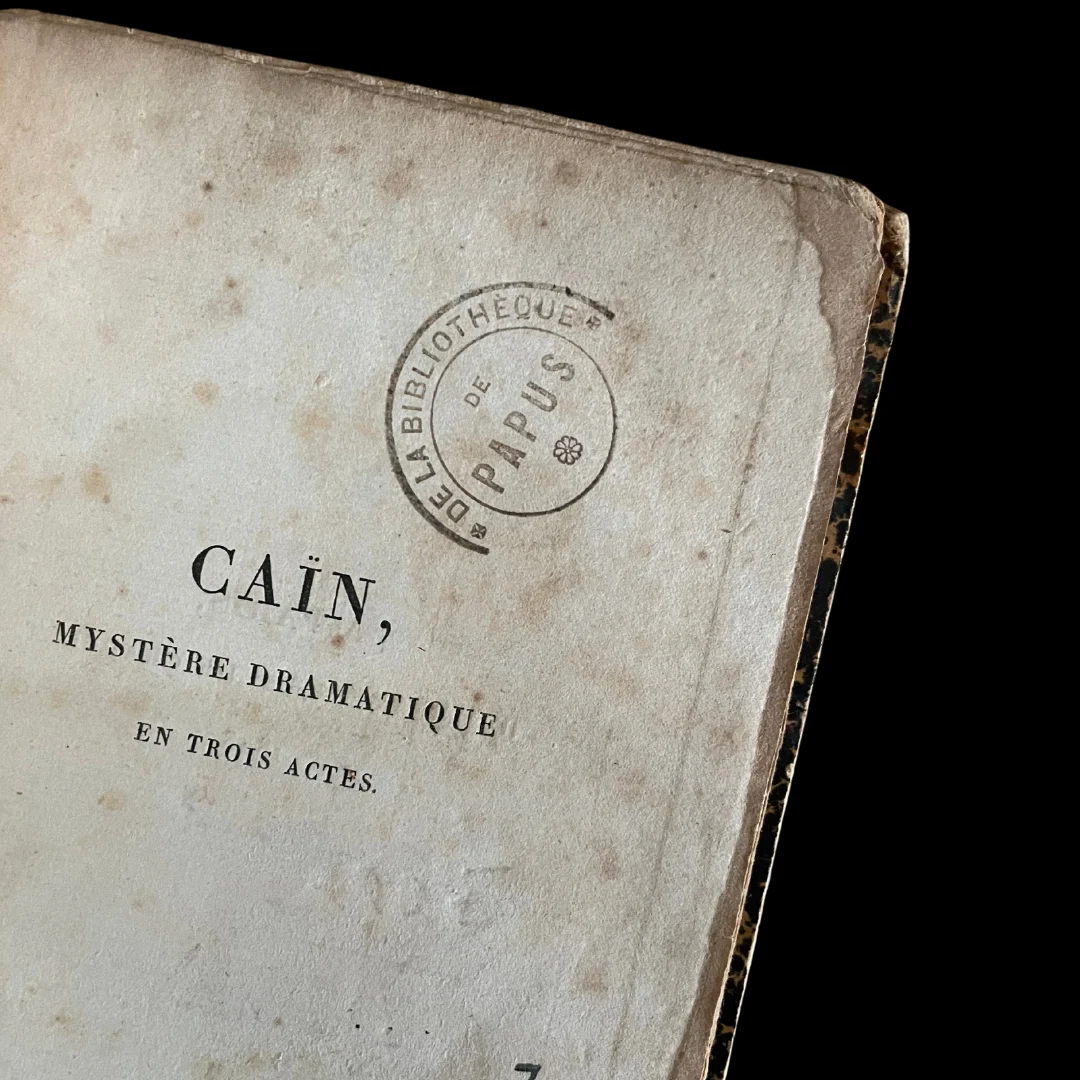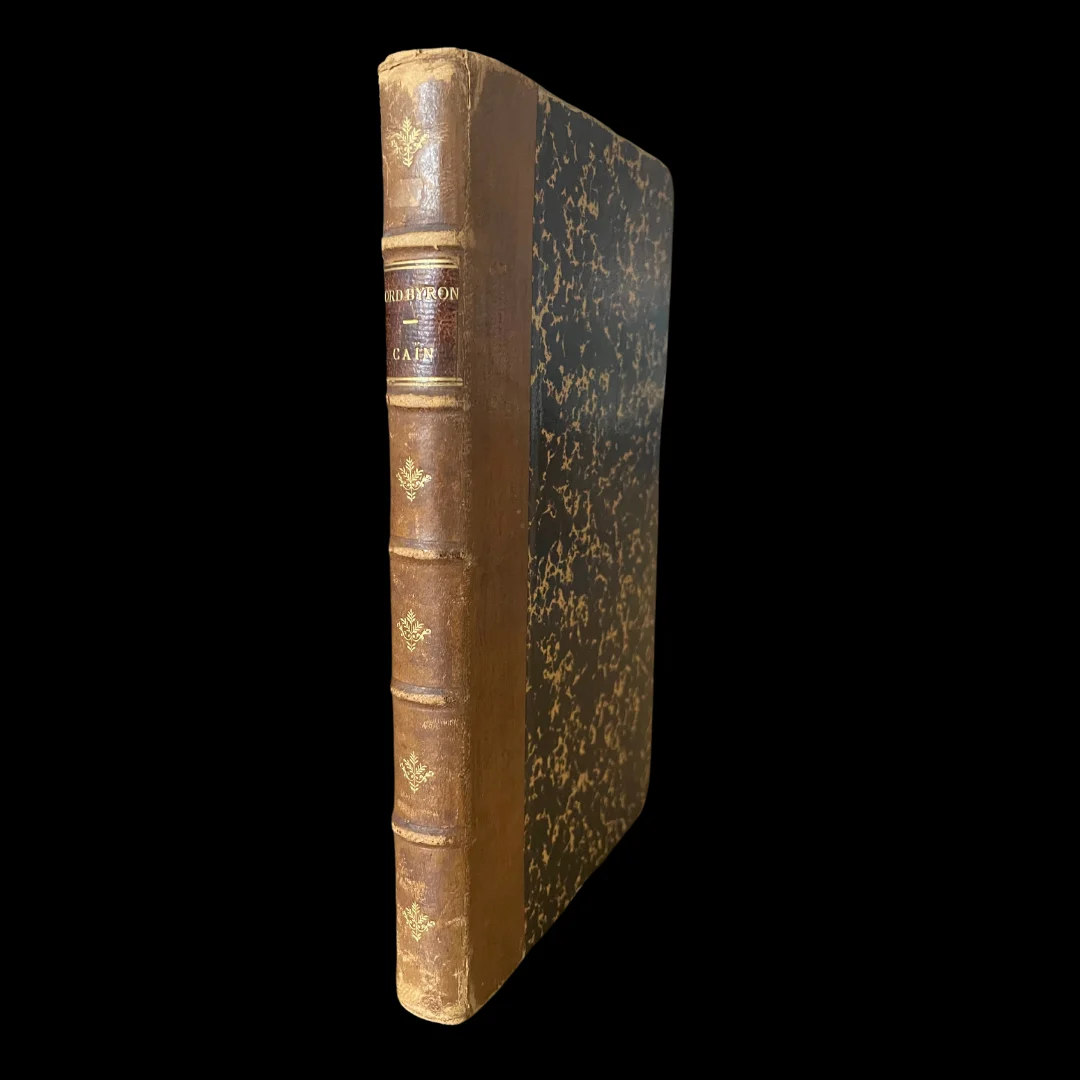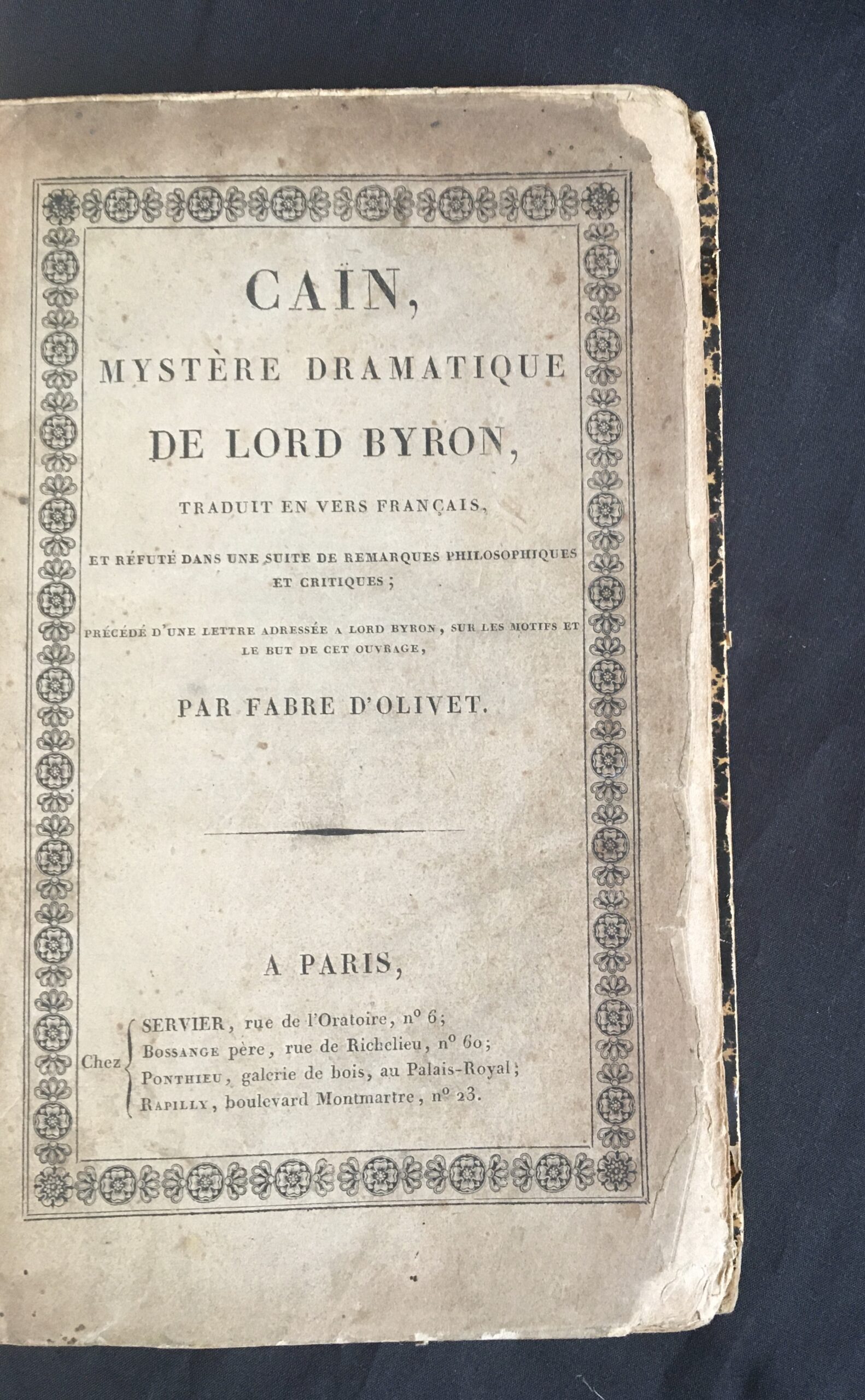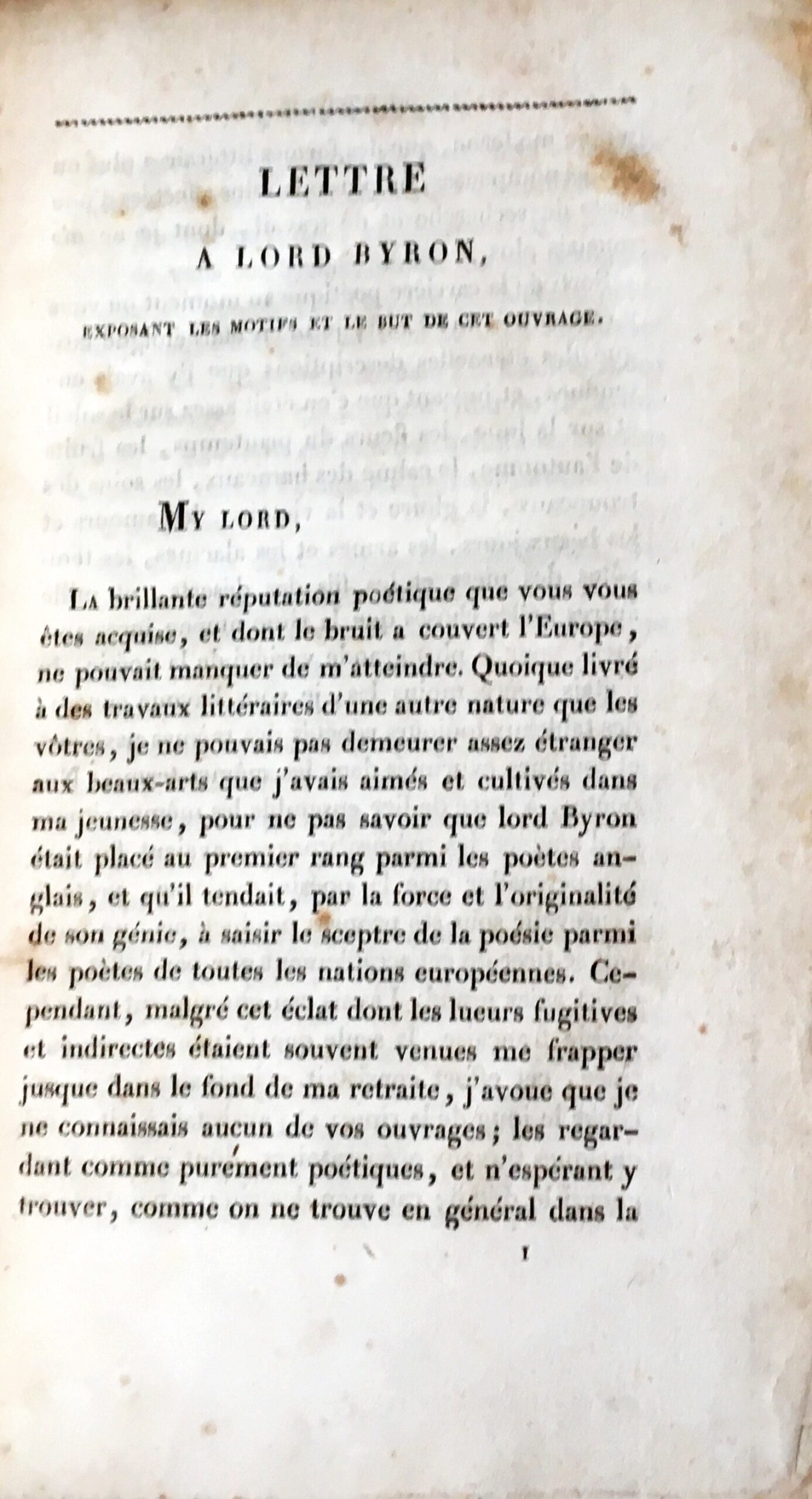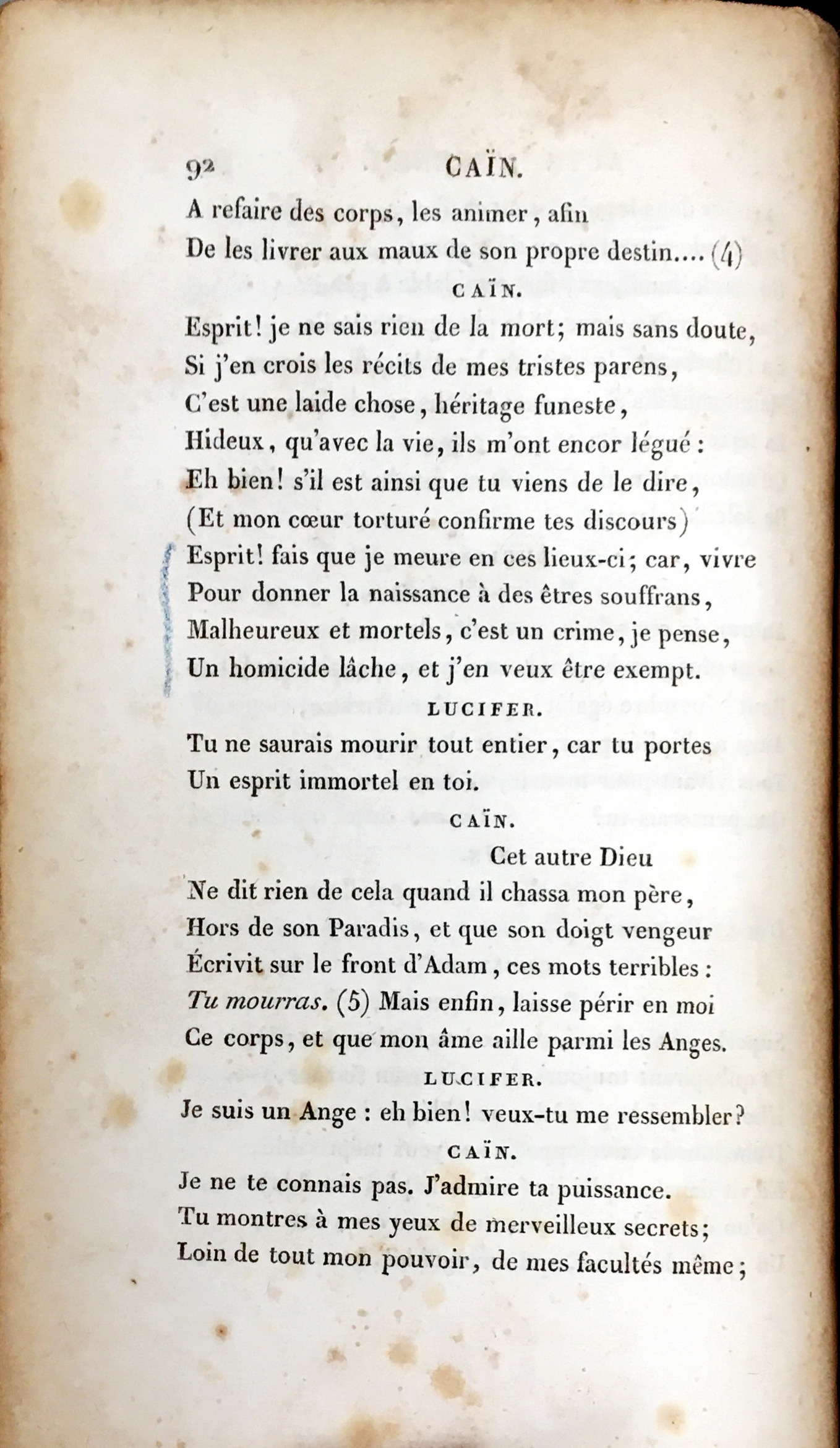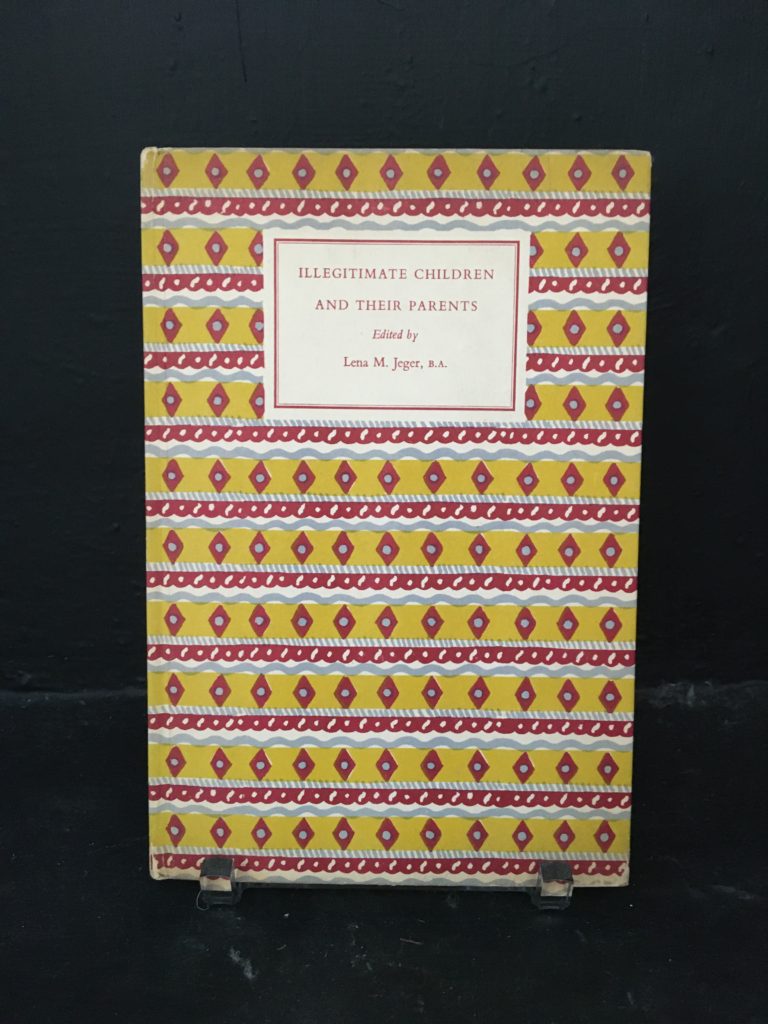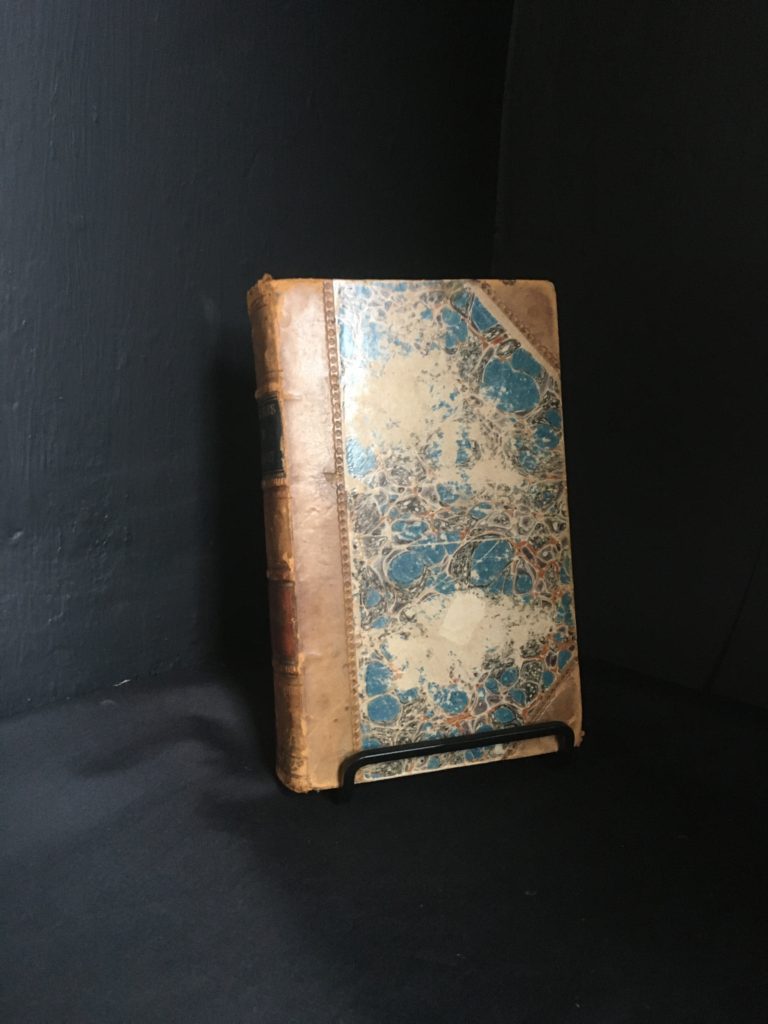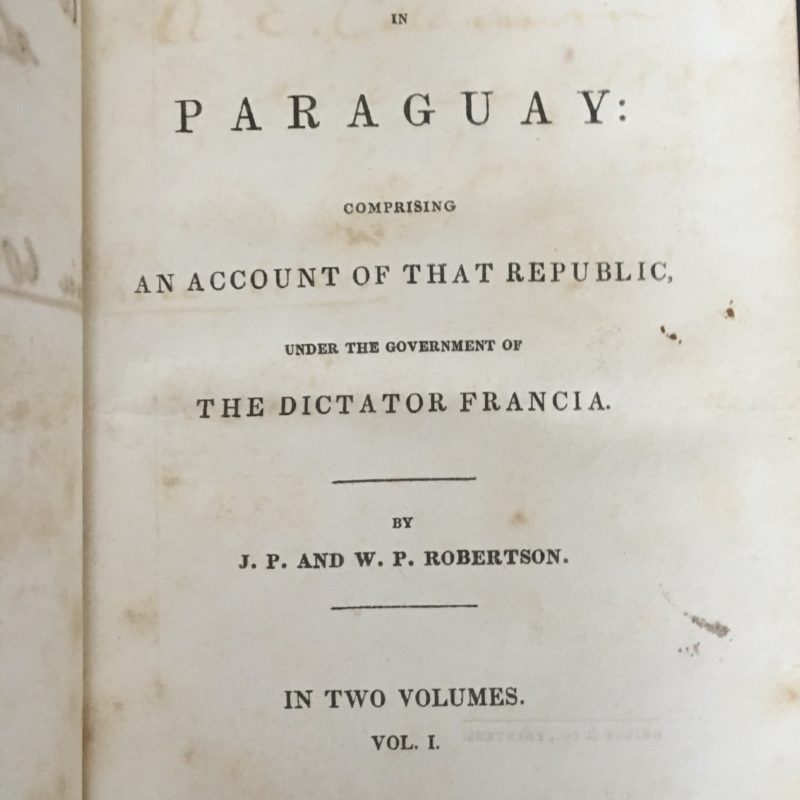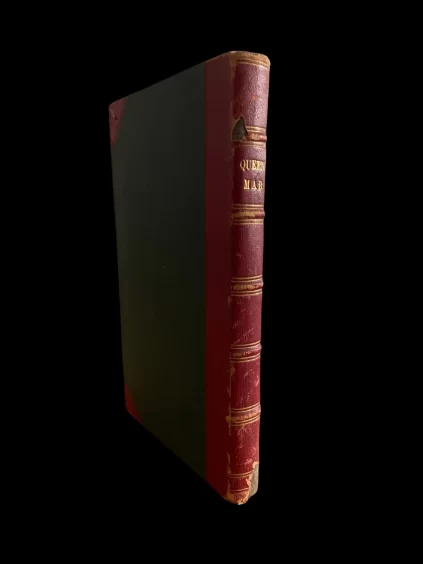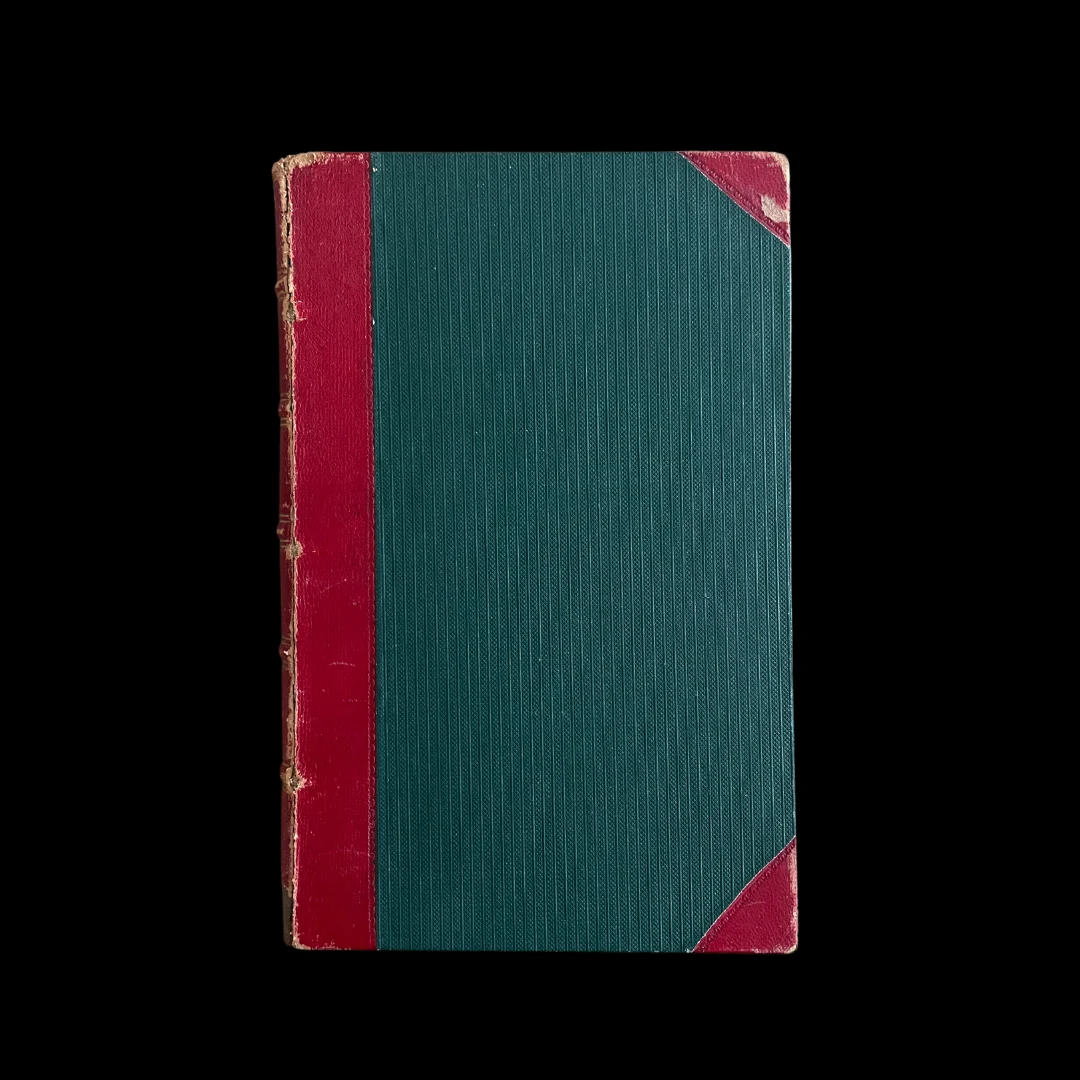Lord Byron’s Cain, Personal Copy of Papus With Stamp
$5,000
In stock
Description
Cain, mystère dramatique en trois actes de lord Byron, traduit en vers français et réfuté dans une suite de remarques philosophiques et critiques. Translated and with commentaries by Antoine Fabre-D’Olivet. Personal copy of Papus, Dr. Gerard Encausse.
“We can understand one another perfectly; and if I didn’t have anything to reprove you as a heretic, you would not have to fear my orthodoxy.”
— Antoine Fabre-D’Olivet to Lord Byron, 1823
Written at the height of Lord Byron’s fame, this “translation” of Lord Byron’s closet drama, Cain, by famed French occultist, linguist, and Martinist mystic Antoine Fabre D’Olivet was intended as both a refutation and attempt at conversion. According to this copy’s former owner, Dr. Gerard Encausse, better known as Papus, author of the Tarot of the Bohemians, spiritual teacher of Tsar Nicholas II, and Fabre-D’Olivet’s eventual heir, it represents, “one of the most beautiful books of scientific morality that we have ever read.”
Addressing the poet as “my Lord” or “mon Adversaire” and writing entirely in French — “evidence of my utmost respect” for Byron’s intelligence—Fabre-D’Olivet explains that he is writing in an effort to save Byron and his readers from a variety of religious errors.
According to Fabre, Byron’s Lucifer, who lures Cain to kill Abel with fine words and argument, misses the hidden symbolism of Genesis in favor of following John Milton.
In his view, the first murder was not a crime, it was a necessary metaphor: Cain, the alchemical fire, destroys Abel, alchemical water, creating alchemical steam, or spirit, for the profligation of humanity.
Chiding Byron as an “Ophite”– after the Gnostic Greek school of Snake worshippers– Fabre cites the Book of Job to say that Satan—Hebrew for “adversary”—is not an independent being but an agent of a higher order. Pulling from sources like Spinoza and Basilius Valentinus, he urges Byron to change his attitudes and perspective on Good, Evil, and Freedom for the sake of himself and others.
Whether he did not have patience for the long-winded, esoteric critique or because he was fighting in Greece, Byron did not respond. He died the following year.
Given Fabre’s statements about the “fallen” status of the English language, its possible his other ulterior motive for this translation was an attempt to bring it closer to the original divine language he called “Restored Hebrew”.
Dr. Gerard Encausse, in addition to his other work, was an avid book collector, building off the library of his teacher (and Fabre-D’Olivet’s student) Alexandre Saint-Yves, Marquess of Alveydre. This volume, bearing his ex-libris stamp and annotations, likely served as his source when discussing Fabre-D’Olivet’s interpretations of Cain, in his essay on his mentors, “Disciples of the Occult” and in La Cabbale.
Papus’ library was maintained and expanded after his death in 1914 by his son Philippe, whose books are distinguished by the young Encausse’s unique stamp.
According to Philippe’s account, the library was deliberately broken up on August 17, 1942 as Gestapo actions against occult and Masonic groups were focused on the Martinist Order and French Gnostic Church, though he was eventually able to recover some of his father’s papers and collection.
Chez Servier, 1823. 8vo, 248pp + 3pp notes. Contemporary marbled boards with gilt leather spine over original paper wrapper. Backed on loose pages of de Mier Noriega Y Guerra’s Historia de la Revolucion de Neuva Espana (1813). Marbled endpapers, and green ribbon bookmark. Library stamp “Bibliotheque de Papus” on half-title. Back board edge and board corners bumped. Some chipping from shelf wear. Deckled edges, worn, with occasional foxing to pages and one or two small corner tears. Papus’ underlines and notations in black, blue, and red pencil. Good condition. 4 copies listed OCLC as of September 2020, including the collections of Yale, Harvard, and the Bibliothèque Nationale de France.
Chez Servier, 1823. 8vo, 248pp + 3pp notes. Contemporary marbled boards with gilt leather spine over original paper wrapper. Backed on loose pages of “Historia de la Revolucion de Neuva Espana”. Marbled endpapers, and green ribbon bookmark. Library stamp “Bibliotheque de Papus” on half-title. Back board edge and board corners bumped. Some chipping from shelf wear. Deckled edges, worn, with occasional foxing to pages and one or two small corner tears. Papus’ underlines and notations in black, blue, and red pencil. Good condition. 4 copies listed OCLC as of September 2020, including the collections of Yale, Harvard, and the Bibliotheque Nationale de France.


